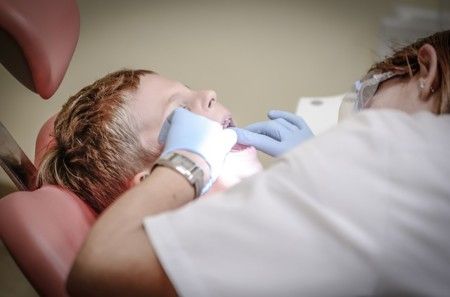Dental health and dental fear
They are white, they shine and conjure up a flawless smile on your face: your teeth. But in reality, this self-evident fact is not self-evident for everyone either. People with gaps between their teeth or damage to their teeth form a separate group in society. One who hides her laughter and for whom these defects in the dentition have not only cosmetic effects, but above all psychological consequences.
The beginning of dental phobia can already be found in childhood. Especially children suffer if their teeth do not correspond to the ideal norm. Amusements about bad teeth and even ostracism as a result leave traces that can affect the relationship with one’s own dental health for a lifetime: Around eight percent of Germans live with a so-called dental phobia – i.e. the fear of dental treatment.
Dental fear – A fear that is no longer accepted
If you are ashamed of your dog’s teeth – no matter if it is a gap, a misalignment or a discoloration of your own teeth – you have the choice: Either you go to the doctor and get treated. Or else he forces himself to deal with it and hide his blemishes. That means: Laughing without showing your teeth. Speaking without opening the mouth too much.
These hiding patterns ultimately influence the entire facial expression of the affected person, their way of speaking and thus their behavior, which is always oriented towards hiding the teeth in all situations. Nowadays, outsiders are usually unable to understand dental fear, since modern dentistry makes it possible to treat patients with as little pain as possible.
Modern dental instruments and dental supplies, such as can be found at dentalkauf24.com can acquire has developed rapidly in recent years. However, those affected tend to be afraid of showing their damaged teeth in general – whether to acquaintances, friends or even the dentist.
The “fear of the dentist” is no longer accepted in society for the reasons mentioned above, and there is almost no understanding for those who still shy away from treatment. This changed image of the dentist and modern technology aggravate the sense of guilt of those who nevertheless prefer to live with their dental defects rather than get help.
Breaking out of the fear spiral
All the more important is the step into the dentist’s office. But anyone who thinks that this cures the phobia is wrong. True, empathetic doctors and the sophisticated technique are initially crucial to overcome the deep-seated fear. But in the end, it’s more the suffering from infected roots and other blemishes that drive phobics into doctors’ offices.
However, once the greatest pains are relieved, many stop treatment and do not attend further sessions with the dental specialist. The stress spiral of the psyche then spins on and on and gnaws away at the patient more and more. Not infrequently, this leads to a kind of isolation, both in professional and private life.
The only way out in such a case is to talk to a psychologist. The dentist starts exactly where the fear originated, literally gets to the root of it and supports the patient in breaking out of the pathological vicious circle. The sooner and earlier a person realizes his dental phobia and fights against it, the better are the prospects for its cure.
Therefore, especially children who show signs of anxious behavior should be taken seriously. The sooner you talk to your child about his or her fears of the dentist, the better the fear can be banished – and both dental and mental health can be improved.









